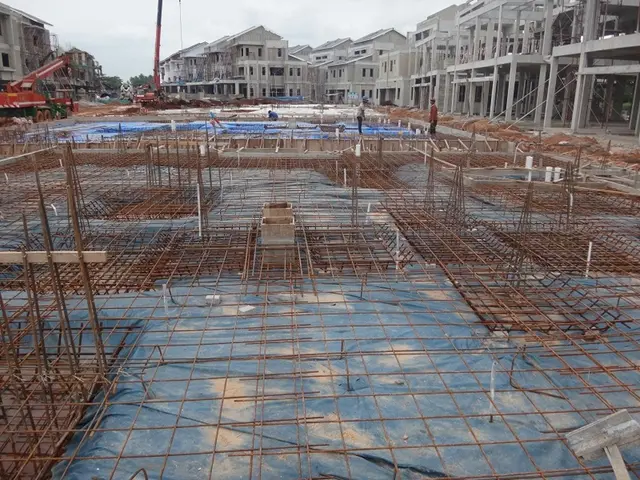Advising of escalating dangers to digital infrastructure, NCC acts proactively to bolster the security of telecom networks.
Nigerian Communications Commission Announces New Measures to Strengthen Telecom Infrastructure Resilience
The Nigerian Communications Commission (NCC) has unveiled a comprehensive strategy to enhance the resilience of digital infrastructure and protect telecom systems from various threats. This move comes in response to the June 2024 Presidential Order, which designates telecommunication infrastructure as Critical National Information Infrastructure (CNII).
Dr. Aminu Maida, the Executive Vice Chairman of the NCC, highlighted the importance of the Presidential Order, stating that the security and resilience of national infrastructure is a "national imperative." He emphasized that the success of the Order depends on the active participation of all stakeholders.
To achieve this goal, the NCC is implementing several initiatives. One such initiative is the expansion and resilience of infrastructure. This includes supporting new data centers, integrating with undersea cables like 2Africa, and promoting robust interconnection platforms that provide redundancy, low latency, and scalability for digital economy players.
Another key aspect of the strategy is the broadband mapping and data governance efforts. The NCC is establishing a National Broadband Mapping Task Force to ensure timely, standardized, and trusted data on network coverage across Nigeria. This initiative strengthens infrastructure planning and resilience by fostering better knowledge sharing and cooperation among stakeholders in West Africa.
The NCC is also expanding broadband access to rural and underserved areas, which empowers broader participation in the digital economy and increases overall infrastructure robustness by diversifying network reach.
In terms of cybersecurity, the NCC is supporting regulatory frameworks like the Nigeria Data Protection Act (NDPA) and enforcement by the Nigeria Data Protection Commission (NDPC). This mandates data protection by design, including encryption and breach detection in telecom systems, thereby increasing cybersecurity resilience and compliance in digital infrastructure development.
To secure infrastructure during road works and other projects, the NCC is collaborating with federal and state governments. Public awareness campaigns are also part of the NCC's initiatives, urging communities to treat telecom facilities as national assets.
Operators are encouraged to invest in more resilient infrastructure, and the NCC is developing a CNII Protection Plan with the Office of the National Security Adviser. The Commission has also mediated disputes at the state level, resulting in resumed fibre deployments in Osun and Kogi States.
It's worth noting that the telecommunications industry contributed 14.4 percent to GDP in the fourth quarter of 2024. However, disruptions to telecom networks could potentially paralyze financial transactions, emergency services, business operations, and national security. The Deloitte Nigeria Cybersecurity Outlook Report recorded a surge in cyberattacks in 2024, underscoring the need for these measures.
Dr. Aminu Maida called for collective responsibility, urging governments to harmonize telecom regulations. Operators report an average of 30 to 43 daily fibre cuts caused by vandalism, sabotage, and theft. The Presidential Order places telecom facilities such as fibre optic cables, towers, and data centres in the same category as other strategic national assets.
With these measures, the NCC aims to create a more secure and resilient telecom ecosystem that can withstand various threats and continue to drive economic growth and development in Nigeria.
Read also:
- AI-Enhanced Battery-Swapping Station in Southeast Asia Officially Opens Its Doors
- Honda unveils blueprint for design, advanced driver assistance systems, electric vehicles, fuel efficiency, and technology development
- Expanded Scout Lineup Unveiled: The Traveler and Terra – Electrified, Extended Range Vehicles with Integrated Front Trunks, Offered in Both SUV and Truck Variants
- G7 leaders convene prior to the upcoming Hiroshima Summit, under the guidance of JAMA heads.








